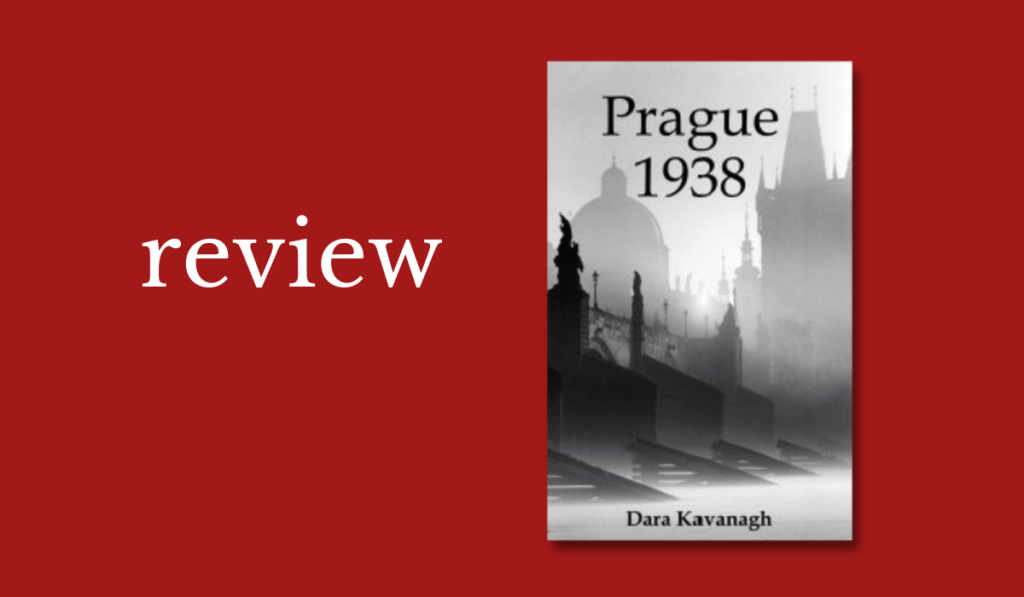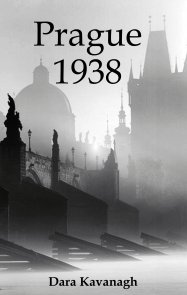
Prague 1938|Dara Kavanagh|Dedalus Books|ISBN:9781912868513
by Fionnuala McManamon
This coming of age story is set in Prague in the lead-up to WWII—when pieces on the chessboard of Europe are about to change places.
The volatile situation in Europe is mirrored in the clever structure of Prague 1938: a chess-set plays a central role—but so subtly you hardly notice.
The chess-set in the story is crafted by fifteen year old Guido Hayek in the back room of his father’s shop. He slowly carves each chess piece as if he must play out the same moves. During much of the narrative he is a pawn, used by the two opposing families in the story, who also play on this analogy of life imitating chess.
Then Guido gets the opportunity to act as a knight in defence of his own family. The reader, knowing how the greater game on the chessboard of Europe evolves, applauds this move. However, Guido sidles off to serve as a knight for the opposite side, so enthralled is he by their queen, and the story plays itself out in further moves.
Exceptional research
As well as enjoying the clever structure, I was impressed by how well researched this story turned out to be. Every detail of the world of the characters rings true—at least from my own reading about the time and place. And while the historical aspects are interesting, what I especially enjoyed is how the novel is full of echoes of 20th century European culture.

Literary echoes
It is impossible not to think of Kafka while reading the book, given the Prague setting. Kafka lived for a brief time on the same street as Guido, and Kafka’s troubled relationship with his father echoes the father and son duo who are central to this story.
Indeed the strange complicity of the Hayek’s relationship reminded me of Bruno Schulz’s The Street of Crocodiles, set in Poland around the same time, because of the equally odd bond between Schulz’s young narrator and his shopkeeper father. Stamp albums are iconic objects in both books, allowing the two young narrators to dream of foreign places far from their own troubled times.
Joseph Roth’s The Radetzky March also came to mind, and since I’m speaking of novels with musical titles, I have to mention that I was reminded of Tolstoy’s The Kreutzer Sonata—and let’s not forget that the title of the book has a musical resonance: Mozart’s symphony, known as Prague 38.
A rich feast
There are many direct cultural references in the book, which make it a rich feast. Stefan Zweig’s novels are mentioned a few times, also Don Quixote. The Don was a knight obsessed with rescuing damsels—and one damsel in particular—a little like fifteen-year Guido who is obsessed with his own elusive ‘Dulcinea’. The boy is eventually so carried away by love that he is compared to Ariosto’s Orlando Furioso, one of Don Quixote’s inspirations. I liked that the narrator and his family were familiar with so many figures from literature and were able to banter about them with humour, in spite of the troubles they lived through.
Some of the chapter titles also have amusing literary echoes, Pequod Mutiny, for example, and Through the Looking-glass and Endgame, which tie in nicely with the chess theme. This all reveals a wonderful playfulness on the part of the author, something I love to find. I’ll be looking out for future books by Dara Kavanagh.











